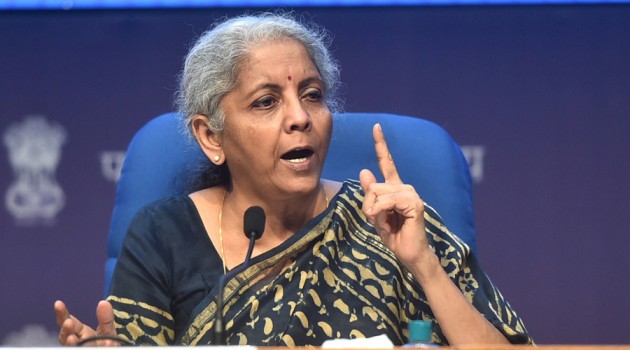The Union ministry of rural development is deceiving the public by claiming that the allocations made for the rural jobs scheme in the Union budget are adequate, a national platform of workers’ collectives, trade unions, organisations and individuals engaged in public action on the NREGA has said in an open letter.
Union finance minister Nirmala Sitharaman had allocated Rs 60,000 crore, the lowest in four years, for the MGNREGA (Mahatma Gandhi National Rural Employment Guarantee Act) scheme despite considerable demand for work.
The slash —besides the reduction in various social welfare schemes — had drawn sharp criticism from various quarters and raised questions about the priorities of the Narendra Modi government at a time the rural employment rate stood at 6.5 per cent (as on January 31, 2023).
Against this backdrop, the ministry of rural development had on February 8 released a detailed statement.
The NREGA Sangharsh Morcha has called the statement “misleading” in the open letter to the ministry.
“From this statement, it appears that the ministry is in denial of the ground realities of NREGA,” said the Morcha letter, which carried a point-by-point rebuttal of the Modi government’s claims.
Besides drilling holes into the official claim that there is no unmet demand for the rural jobs scheme — the NREGA is a demand-driven law and the demand for work must be satisfied — and the allocation is adequate, the Morcha missive has highlighted the delays in payment of wages and the deficiencies in the National Mobile Monitoring Systems, which was introduced to take the real-time attendance of workers at NREGA worksites.
“The ministry is deceiving the public by claiming that the budget allocation is adequate and will be supplemented in good time to meet the demand for work. It knows very well that the supplementary allocation proves inadequate every year and leads to wage arrears being carried over to the next financial year (more than Rs 10,000 crore this year),” said the letter, adding that it is important to make a much higher budget allocation this year.
In a sharp rebuttal to the Centre’s claims, the Morcha has said that what is passed off as “work demand” in NREGA’s Management and Information System (MIS) can by no means be interpreted as an indicator of the full demand for work.
“It is only a record of formal requests that may or may not have been submitted by workers themselves. More often, these digital requests are just a formality fulfilled by the implementing agency or middlemen. Independent surveys show that the real demand for work is much larger.... Many households would like more NREGA work but they don’t know how to apply, and may not even be aware that they have a right to apply,” the Morcha has mentioned.
On the issue of demand for work, it has referred to a recent study by the Azim Premji University — titled Employment Guarantee during Covid-19 — that found a large majority of households, surveyed under the study, faced rationing in the rural jobs scheme and could not get as much work as they wanted during the Covid year.
The other important bottleneck in the programme — timely payment of wages for workers — has also been underscored in the letter, which has referred to the government’s claim of timely wage payment — within 15 days — as “poetry”.
“Many recent studies show that payment delays remain the norm rather than the exception. For instance, a careful analysis of 18 lakh wage transactions in the first half of 2021 revealed that the Centre delayed payment of 44 per cent of the wages beyond 15 days,” said the Morcha letter.
A case in point here is the experience of Bengal — the Morcha letter has not mentioned it though — where over 50 lakh job card holders are awaiting their payment as the Centre has not released around Rs 3,000 crore in wage payment citing irregularities in implementing the scheme.
While this delay has given both the governments at the state and the Centre a chance to attack each other, the real sufferers have been the workers, many of whom have left Bengal in search of livelihood in other states.
In its letter, the Morcha, which has been fighting for the cause of workers, has informed the ministry that it has launched an indefinite protest at Jantar Mantar from Monday demanding a lasting solution to the persistent problem of delayed and unreliable NREGA wage payments and withdrawal of the NMMS (National Mobile Monitoring Systems) App.
Although the government introduced this app in 2021 with much fanfare, several organisations like the Morcha have been highlighting how it has gone against the interest of workers.
“The claim that ‘no major issue has been reported in its (NMMS) implementation’ is simply false... Many NREGA workers today work without being paid because of technical problems related to the NMMS App -– this is a gross violation of their inalienable right to payment within 15 days,” the Morcha has said.











